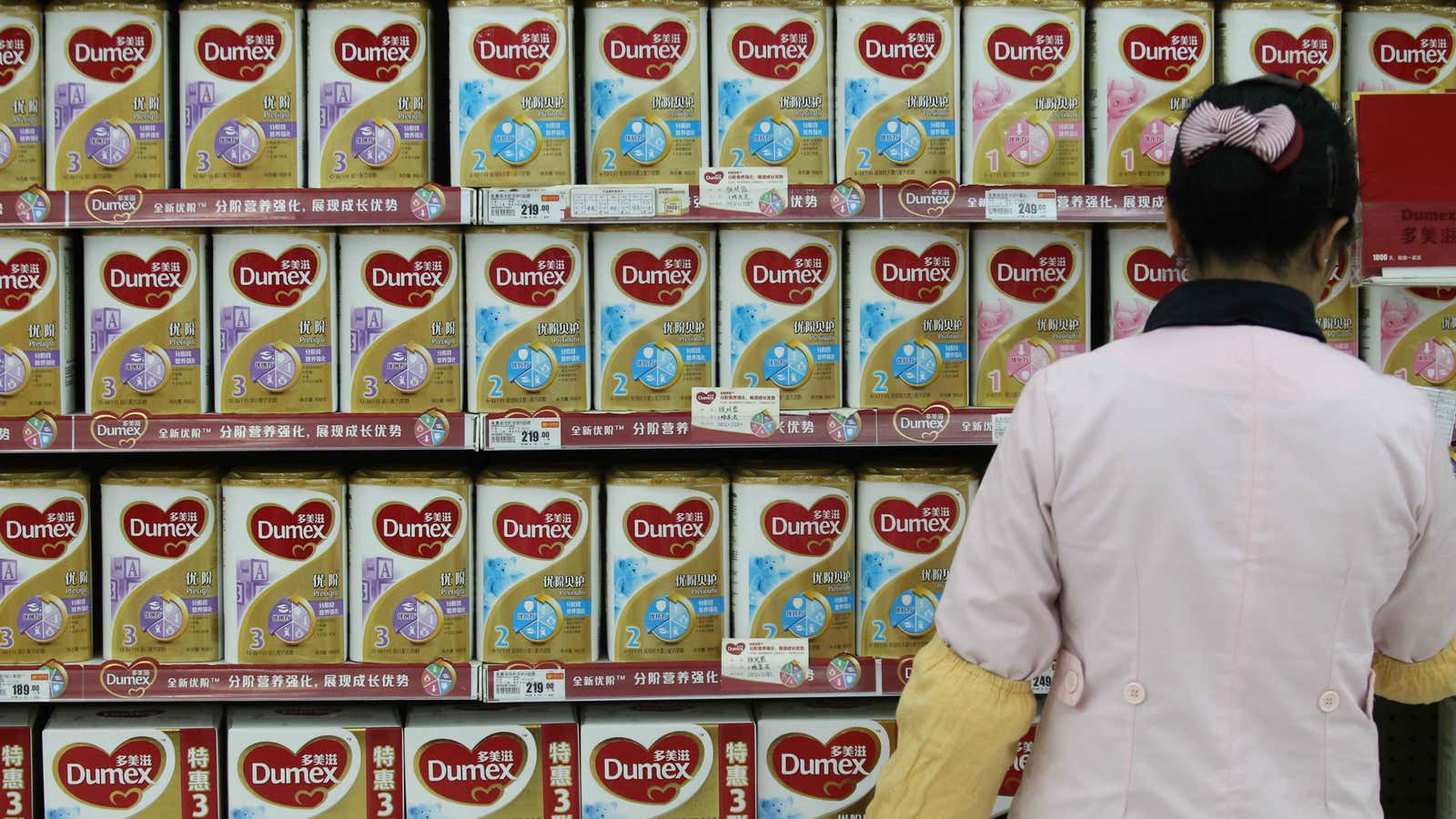Chinese authorities have launched an anti-trust probe into several baby formula companies to investigate alleged price fixing and anti-competitive behavior. Almost all of the companies appear to be foreign manufacturers, raising questions about whether Beijing is targeting them in order to shore up its own damaged sector.
The companies under scrutiny include Mead Johnson, Wyeth, Dumex, Nestle and China’s own Biostime. The anti-trust authority says that baby formula prices have gone up by 30% since 2008, and foreign brands account for around 60% of the market, which is expected to be worth $25 billion by 2017. Given that baby formula in China is under-supplied, it is likely that the companies being investigated will attribute price rises to natural market forces. Most have remained silent, but Biostime said that its prices have not changed significantly (paywall) in recent years.
Baby formula is a tough topic in China. The country’s aversion to breast-feeding and the rapid rise in standards of living spurred a boom in China’s dairy market starting in the early 2000s—one that faltered following a series of scandals involving tainted milk (paywall). The most notorious incident occurred in 2008, when a Chinese brand of formula tainted with melamine, an additive to boost protein content for high-end formula, killed six babies and sickened hundreds of thousands. Since then, Chinese consumers have turned to foreign brands due to their more trustworthy quality-control regimes. But because the supply of those has been insufficient to fulfill the country’s insatiable demand, desperate Chinese parents have driven the burgeoning global trade of baby formula smuggling. The situation in Hong Kong has become so bad that police have been arresting more people for smuggling milk powder than trafficking drugs.
Even if the Chinese government is not deliberately victimizing foreign companies, it has made no secret of its plans to reshape the market, preferably built around a strong domestic industry. And it’s not afraid to play rough. Officials imposed even stricter rules on imports last month and now require baby formula to follow pharmaceutical-grade rules, involving a comprehensive labeling and tracking system.
Around a third of the country’s 127 licensed domestic formula companies will eventually be put out of business, according to Beijing authorities. A senior Shanghai party official told state media recently that the companies that will be squeezed out “are not necessarily unqualified, but the country needs more powerful alliances.” The irony of such an ambition running alongside an anti-trust investigation is that concentrating domestic market shares will reduce competition, and may end up fostering the very monopolistic behavior Beijing says it is trying to break.
